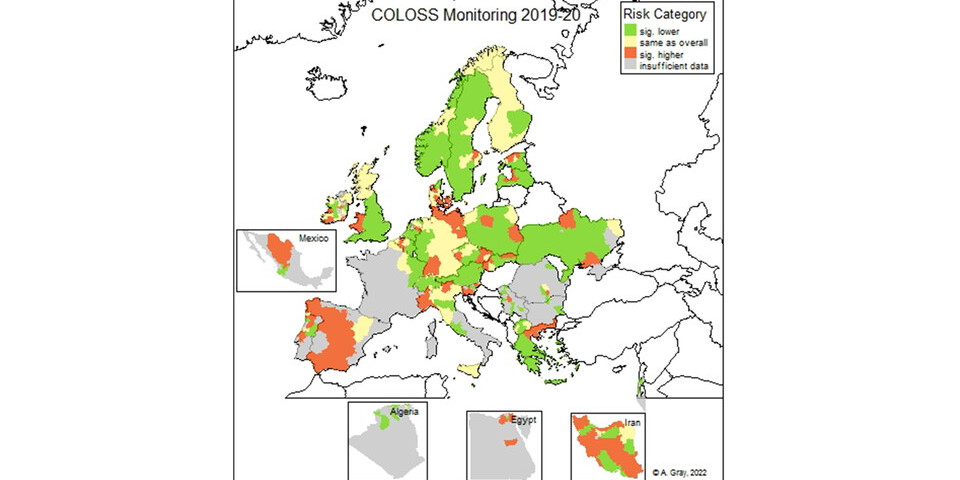Abstract
This article presents managed honey bee colony loss rates over winter 2019/20 resulting from using the standardised COLOSS questionnaire in 37 countries. Six countries were from outside Europe, including, for the first time in this series of articles, New Zealand. The 30,491 beekeepers outside New Zealand reported 4.5% of colonies with unsolvable queen problems, 11.1% of colonies dead after winter and 2.6% lost through natural disaster. This gave an overall colony winter loss rate of 18.1%, higher than in the previous year. The winter loss rates varied greatly between countries, from 7.4% to 36.5%. 3216 beekeepers from New Zealand managing 297,345 colonies reported 10.5% losses for their 2019 winter (six months earlier than for other, Northern Hemisphere, countries). We modelled the risk of loss as a dead/empty colony or from unresolvable queen problems, for all countries except New Zealand. Overall, larger beekeeping operations with more than 50 colonies experienced significantly lower losses (p < 0.001). Migration was also highly significant (p < 0.001), with lower loss rates for operations migrating their colonies in the previous season. A higher proportion of new queens reduced the risk of colony winter loss (p < 0.001), suggesting that more queen replacement is better. All three factors, operation size, migration and proportion of young queens, were also included in a multivariable main effects quasi-binomial GLM and all three remained highly significant (p < 0.001). Detailed results for each country and overall are given in a table, and a map shows relative risks of winter loss at the regional level.










